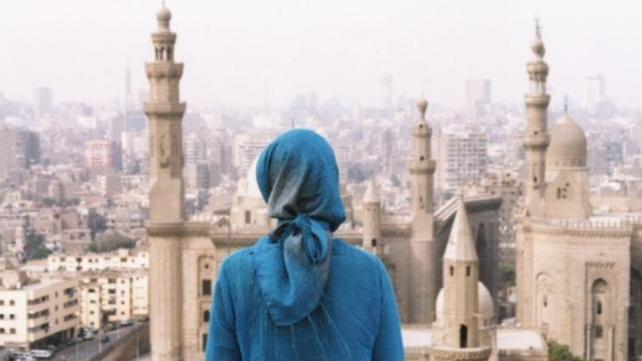Why Muslim Women Don't Feel Respected
By Abdul Malik Mujahid
Chicago, IL

Nick Leonard (Jungle Boy)
Muslim women in America have a greater level of economic gender parity with men than any other group studied by Gallup. However, Muslim women feel the least respected of all groups.
Gallup surveys America every day. Based on hundreds of these daily surveys, in early 2009, Gallup developed an in-depth study of the Muslim American community titled, Muslim Americans: A National Portrait.
It is this survey which determined that Muslim women have the best economic gender parity with men in America. They are equal to Muslim men in the lower income bracket and five percent behind Muslim men in the higher income bracket as compared to Jewish women who are 38% behind Jewish men. As a general trend among all religious groups, women have lower incomes: 'Protestants and Catholics have the largest gender differences in the lower-income bracket, and Protestants and Jews have the largest difference between men and women in the higher-income bracket.?
My happiness at the findings did not last long as I came across the results on Muslim women feeling respected. The findings showed that Muslim women as compared to other women feel the least respected: 91% of Muslim men reported feeling respected while 85% Muslim women reported that they feel respected. This gap is smaller between Protestant, Catholic and Jewish men and women.
I interviewed the three Gallup analysts who worked on this report. I asked them if they had asked the women why they felt disrespected. Perhaps factors such as hijab or Islamophobia might be contributing to the women's feeling disrespect. Since the survey was not focused on Muslims, there is no way to know more about this respect gap. It might require another survey to explore further.
My mind did wander to the place of Muslim women in the Masjid. It is a reality that many mosques in North America have not made better prayer arrangements for Muslim women. In Chicago, where Juma is offered at about 200 locations, I believe there are 20-plus Masjids where there is no area for women to pray in. I wish these men knew that the Prophet asked Muslim men not to stop women from coming to the Masjid, God's peace and blessings be upon him. Many mosques have women's space so secluded that they cannot see the Imam. This is unlike the Prophet's Masjid, where women could easily see all that was going on. We cannot be better Muslims than our beloved Prophet and his Companions, can we?
Among the major sources of confusion about Islam in America is women's place in the faith. Unfortunately, some Muslims have fueled this with their practices and attitudes. For example, women in Saudi Arabia can't drive. It defies my imagination that Saudi Arabia, the birthplace of Islam, would have such an un-Islamic law. Similarly, the Taliban's destruction of girls' schools goes against the very core of Prophetic teachings which make seeking knowledge specifically 'a duty for every Muslim man and every Muslim woman?
These attitudes are utterly un-Islamic and contribute to Islamophobia. There is some truth to our neighbors' confusion when it comes to the status of women among Muslims. I remember when Governor Howard Dean, then chair of the Democratic Party, came to visit me at the Downtown Islamic Center and I showed him the Masjid area, the first thing he wanted to know was where women pray.
Historically, the role of Muslim women was far more dynamic than it has become now. We can still feel the impact of our faith's true teachings in rare cases. It speaks to the power of the Qur’an and the Sunnah that despite the above-mentioned problems, in some ways Muslim women are ahead of other women. Unlike in America, there are more female physicians in Turkey than male ones. Almost 40% of all property is owned exclusively by women in Saudi Arabia thanks to Islamic inheritance laws. Women have been president or prime minister in the largest Muslim country Indonesia, in the second largest Muslim country Pakistan, in the third largest country Bangladesh, and in the fourth largest Muslim country Turkey. However, these good things are blurred out by the previously mentioned realities.
Women's place in Muslim society must constitute a central point of Muslim debates. Muslims must talk and write about this issue, as well as lead discussions about it. The works of Jamal Badawi and Hassan Turabi on women and Islam should be a required reading in our Islamic schools. (The works of both authors are available on Sound Vision's website by authors' permission for free electronic readings.)
Everyone seems to be talking about Muslim women except Muslim women themselves. Most of the time, Amazon's bestsellers on Islam and women are anti-Muslim women like Ayaan Hirsi Ali, Irshad Manji, and Wafa Sultan. They have either publicly left Islam or have joined a cottage industry of Islam-bashers that has boomed since 9/11.
It is about time that the believing women come forward and lead the way. Muslim women have the education. They have the best income parity with men in America. All they need is more respect.
Photo Attribution: Nick Leonard (Jungle Boy) - http://commons.wikimedia.org/wiki/File:Hijabi_in_front_of_mosue_in_Cairo
https://www.soundvision.com/article/why-muslim-women-dont-feel-respected?eType=EmailBlastContent&eId=65112ad6-a819-4f64-96ed-41dc6c3573d7

